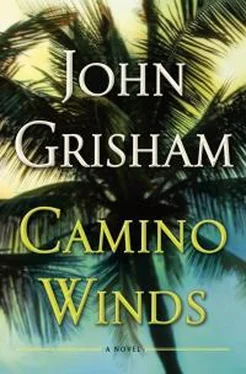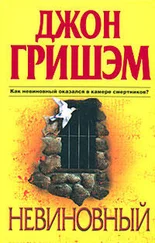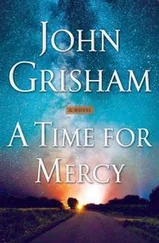At eleven, on cue, Agent Ross Mayfield and three of his colleagues, now dressed in the standard black suits, arrived, and F. Max directed everyone to the conference room of his splendid office suite. A secretary served coffee and doughnuts as the men jawed aimlessly in a vain effort to break the tension.
After the secretary was gone, F. Max took control of the meeting with “I assume you are here to offer my client some type of deal.”
Mayfield said, “That’s correct. We are working with the U.S. Attorney here in Houston and our plans are to indict most of the top management of Grattin, including Mr. Shennault. We are certain that your client has been involved in an enormous Medicare and Medicaid fraud for many years, and he will certainly be indicted for it, along with many others who work for the company.”
“And how would you describe this fraud?” F. Max asked, probing, though he already knew the basics.
“It involves a drug called Flaxacill, better known throughout the company as vitamin E3. It’s registered but unapproved because it’s a bad drug. It was discovered by accident in a Chinese lab about twenty years ago, and at first it was thought to have enormous potential because it could possibly extend life by keeping a heart beating. Turned out, though, that it only works for patients who have lost all other brain functions, plus it causes blindness that is almost instantaneous. Somehow, the good folks at Grattin found out about the drug and cut a deal with the Chinese lab. For the past twenty years Grattin has been using its miracle vitamin to keep tens of thousands of dementia patients breathing for a few more months.”
“So the drug actually extends life?” F. Max asked, as if in disbelief.
“For critically injured or advanced dementia patients. There’s also the blindness issue. I’m not sure you want to ask a jury to believe it’s really a good drug.”
“I know what to do with a jury, Mr. Mayfield.”
“I’m sure you do and we just might give you the chance. We’re not here to bicker and negotiate. I’m sure you’re a real hero in the courtroom, Mr. Darden, but, to put it bluntly, you ain’t got no case.”
Sid cooled things with “So what’s the deal?”
Mayfield took a sip of coffee and continued to stare down Darden. Finally, he put down his cup and addressed Sid. “First, you inform. You have about two weeks to deliver the documents. We need payment routing for the drug. How much and where does the money go? And for how long? Who’s involved in getting the money to the Chinese lab? That’s accounting and that’s your expertise. We also need names of other execs or senior management people who approved of or knew about the drug. Second, we’ll get the indictments and make the arrests. These will be carefully coordinated because Ken Reed is an obvious flight risk. So far, we’ve identified three corporate jets and three homes outside the U.S. You’ll be arrested first, and we’ll do it quietly, discreetly, no one will know. The next day we’ll send in the SWAT team for the big drama. Third, you’ll turn state’s evidence, give us all the affidavits we need, and prepare to testify if necessary. We’ll enter into a plea agreement and ask the judge for leniency.”
“How much leniency?” Sid asked.
“No fines, six months max in jail, home arrest.”
Sid accepted this with an air of resignation. His glory days were over and he’d had a good run. There was plenty of money in the bank and enough time left to rebuild a future. His wife and kids would stick by him, weather the embarrassment and move on. It was, after all, Texas, a land where pasts were easily forgotten if one picked up the pieces and made more money. There was also a certain admiration for outlaws. And, frankly, he had no loyalty to Ken Reed and his inner circle. Most of the men were on their third wives and pursued lifestyles repugnant to Sid’s beliefs. It would be a pleasant day when he walked out of Grattin and never looked back.
F. Max said, “Why can’t we go with immunity? I’d feel much better if my client were immune from prosecution. He can still cooperate fully and you’ll get what you want.”
“There will be no immunity in this case. And that’s from Washington.”
9.
At the insistence of the FBI, and with its offer to foot the bill, Bob Cobb flew from Boston to L.A. where two agents met him outside customs and drove him to their offices on Wilshire Boulevard. He was led to an unmarked suite on the third floor and introduced to an Agent Baskin, who was all smiles. A victory was at hand and everyone seemed to feel it. Baskin walked him across the hall to a small conference room where a technician was waiting. On a large digital screen, the same image of poor old Rick Patterson trying to die came into clear view.
Baskin said, “I understand you’ve already seen some of this.”
Cobb said, “Yes, in Jacksonville.”
“Well, there’s more. This was two days ago.” Around the bed, all jackets had been removed and the five white men appeared to be weary of their interrogations. The U.S. Attorney held a legal pad and spoke down to the witness/patient. “Now, Mr. Patterson, on August the fifth of last year, a writer by the name of Nelson Kerr was murdered on Camino Island, Florida. Were you involved in any way?”
A painful pause, then a weak and scratchy “Yes.”
“Did you kill Nelson Kerr?”
“No.”
“Did your partner, Karen Sharbonnet?”
“Yes.”
“And this was in the middle of a major hurricane, right?”
“Yes.”
“Mr. Kerr died from multiple blunt-force wounds to the head, is that right?”
“Yes.”
“Do you know what weapon was used?”
“Yes.” A long pause, then his lawyer leaned down to within inches of the man’s mouth. Patterson groaned and mumbled something. The lawyer whispered to the U.S. Attorney, who then asked, “The murder weapon was a golf club?”
“Yes.”
Bob Cobb couldn’t help but chuckle. “That son of a bitch,” he said.
“Beg your pardon,” Baskin said.
“That kid figured it out the day after the murder. A long story. I’ll explain later, or not. Doesn’t matter.”
Back to the interrogation. The U.S. Attorney asked the witness, “How much were you and Karen Sharbonnet paid to murder Nelson Kerr?”
Another painful pause, then a soft “Four.”
“Four million?”
“Yes.”
“And you split the money equally?”
“Yes.”
“Who paid the money?”
A pause. His lawyer leaned down again and strained to listen. Patterson grunted and the lawyer stood and whispered to the U.S. Attorney, who then asked, “You were paid by a broker?”
“Yes.”
“And who is this broker?”
The lawyer whispered again, and the U.S. Attorney asked, “Is the name of the broker a Mr. Matthew Dunn?”
“Yes.”
At that point the witness shut down and his interrogators backed off. A doctor stepped forward and whispered to him, then waved them all away. The screen went blank.
Agent Baskin said, “That was it for the day. He’s good for about twenty minutes. We found Matthew Dunn and have him under surveillance. A real character. Background in arms trafficking, drugs, even worked as a mercenary in Syria. A bad dude, but we’ll catch him soon enough. You want to see your girl?”
“I do.”
“A caution. She has no idea that Patterson is even alive. We assume she thinks she finished him off in the woods and she’s playing a real tough-girl game right now.”
“Let’s go.”
They walked down one flight to the second floor and stopped at a door that two agents were guarding. Baskin opened the door and motioned for Bob to step inside. Have a go.
Karen Sharbonnet was seated in a metal chair on one side of a wire mesh partition that did not rise to the ceiling. Her left hand was cuffed to a chain bound to the chair. Bob sat across from her and gave her a smile, one she did not return.
Читать дальше












